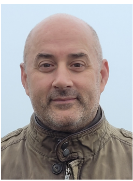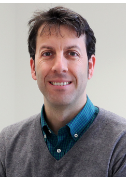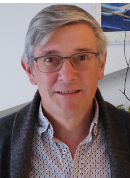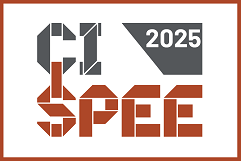WS01 - Teaching and Learning Basic Electronics Through Remote Experiments
Context:The COVID-19 lockdown triggered a widespread interest in solutions based on non-traditional (remote and virtual) laboratories, derived from the restrictions imposed on the physical presence of teachers and students in traditional (hands-on) laboratories. Spite the repetition of the advantages associated with the complementary use of remote and virtual laboratories, alongside evidence from its regular use in distance education modalities, "the problem had to appear in order to understand the solution". In other words, although remote and virtual laboratories have a history of more than 25 years, only more recently the discussion about its regular use in STEM education became widespread.
Purpose:Given this background, we deliver a workshop where attendees will have the opportunity to use a remote laboratory, named Virtual Instrumentation Systems in Reality (VISIR), which enables doing (real) experiments with electrical and electronic circuits, supported by an enquiry-based pedagogical framework explained in the recently launched VISIR Handbook [3]. The course will be supported by VISIR nodes installed in Portugal and Brazil, and the newest version of this remote laboratory, named HIVE, which has been developed by LabsLand®, a company devoted to the delivery and support of remote laboratories. HIVE nodes are presently installed in Spain and Germany [4]. The aim of this workshop is to give participants insight into how to design an entire course on a specific engineering field using remote experiments and an enquiry-based teaching and learning approach as the two major instructional strategies. A practical example in the specific area of electric and electronic circuits supports the workshop.

Gustavo R. Alves
Gustavo R. Alves obtained his PhD and the Habilitation in Computers and Electrical Engineering, from the University of Porto, Portugal, in 1999 and 2023, respectively. He is affiliated with the Polytechnic of Porto – School of Engineering, since 1994, where he now holds a position as an Associate Professor. He was involved in 21 national and international R&D projects, has authored or co-authored 280+ publications, including book chapters and conference and journal papers with a referee process, and has delivered 70+ invited webinars/keynotes at national and international levels. His research interests include engineering education and remote laboratories. Dr. Alves currently serves as the Head of the Innovation Centre for Engineering and Industrial Technology (CIETI), an R&D unit supported by the Portuguese Governmental Agency for Science & Technology (FCT). ORCID

Unai Hernández-Jayo
Unai Hernández-Jayo is a Telecommunications Engineer and holds a PhD in Computer and Telecommunications Engineering from the University of Deusto. He is currently a lecturer and researcher at the University of Deusto. His publications are mainly in e-Learning, specifically in the design and development of remote laboratories, an activity he carries out within the framework of the DEUSTEK research group. He has participated in more than 50 research projects, being the principal investigator in more than 20 of them. He is an author/a co-author of more than 150 research publications, mainly in engineering education and remote laboratories. ORCID

Javier García-Zubía
Javier García-Zubía is a professor at the University of Deusto since 2015 and is a member of the DEUSTEK research group. He was involved in 50+ national and international R&D projects and has authored or co-authored 260+ publications, including book chapters, conference, and journal papers with a referee process. He was invited as a keynote speaker in 10+ conferences and he was awarded in 10+ events. He edited three books around remote labs and he is the author of the book Remote Laboratories: Empowering STEM Education with Technology recently published by World Scientific Publishing. ORCID

